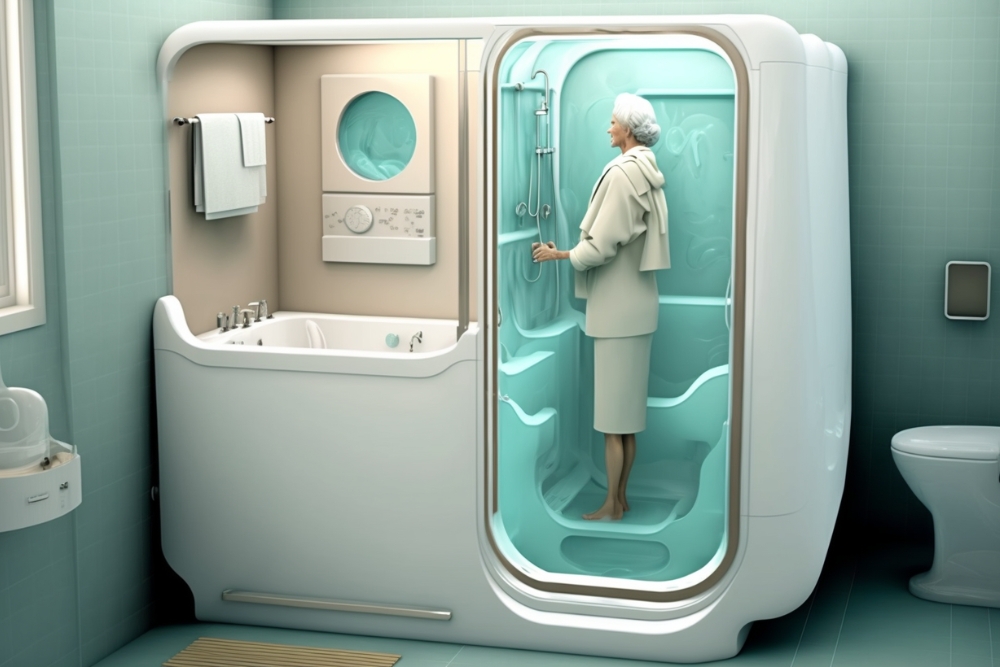Essential Skills Needed to Become a Professional Caregiver: A Complete Guide
Professional caregiving is a rewarding career path that combines compassion with practical expertise. As the demand for quality care continues to grow, understanding the fundamental skills and qualifications required becomes increasingly important. This guide explores the core competencies, training requirements, and personal attributes that define successful caregivers in today's healthcare landscape.

The caregiving profession demands a unique blend of technical knowledge, interpersonal abilities, and emotional resilience. Whether you are considering a career change or exploring healthcare opportunities, understanding what it takes to become a professional caregiver helps you prepare for this meaningful work. Professional caregivers provide essential support to individuals who need assistance with daily activities, medical care, or companionship due to age, illness, or disability.
What It Takes to Be a Professional Caregiver
Becoming a professional caregiver in 2025 requires more than just a caring personality. The role demands formal training, certification, and ongoing education to meet industry standards and provide quality care. Most positions require completion of a state-approved training program, which typically includes classroom instruction and supervised clinical practice. These programs cover topics such as infection control, patient rights, emergency procedures, and proper body mechanics.
Successful caregivers demonstrate reliability, patience, and strong communication skills. They must be physically capable of assisting clients with mobility, personal hygiene, and daily tasks. Many employers also require background checks, health screenings, and proof of immunizations. Understanding these baseline requirements helps prospective caregivers assess their readiness for the profession and identify any gaps in their preparation.
Skills Needed to Become a Professional Caregiver
The foundation of professional caregiving rests on several core competencies. Medical knowledge forms the technical backbone, including understanding vital signs, medication administration, wound care, and recognizing signs of distress or medical emergencies. Caregivers must be trained in proper hygiene practices, infection prevention, and safe patient handling techniques to protect both themselves and their clients.
Interpersonal skills are equally critical. Effective communication allows caregivers to understand client needs, follow care plans accurately, and coordinate with healthcare teams and family members. Emotional intelligence helps caregivers provide compassionate support while maintaining professional boundaries. Problem-solving abilities enable quick thinking in unexpected situations, while organizational skills ensure that multiple tasks and schedules are managed efficiently.
Adaptability is essential, as each client presents unique challenges and preferences. Cultural sensitivity and respect for diversity ensure that care is provided in a manner that honors individual backgrounds and beliefs. Time management skills help caregivers balance competing priorities, while documentation abilities ensure accurate record-keeping for continuity of care.
Training and Certification Requirements
Formal education pathways vary depending on the specific caregiving role. Certified Nursing Assistants typically complete 75 to 150 hours of training through community colleges or vocational schools, followed by a state competency exam. Home health aides may require similar training, though requirements differ by state and employer. Personal care aides often receive on-the-job training, though certification programs are increasingly preferred.
Advanced caregiving roles, such as licensed practical nurses or registered nurses, require more extensive education through diploma programs, associate degrees, or bachelor’s degrees. Specialized certifications in areas like dementia care, hospice support, or pediatric care can enhance employment prospects and professional development. Continuing education requirements ensure that caregivers stay current with best practices and regulatory changes throughout their careers.
Understanding Compensation in Caregiving
While specific figures vary widely based on location, experience, credentials, and work setting, understanding general compensation trends helps prospective caregivers make informed career decisions. Entry-level positions typically offer hourly wages, while experienced professionals with specialized skills or advanced certifications may earn higher compensation. Factors influencing pay include geographic region, type of employer, shift differentials, and whether the position is full-time or part-time.
Benefits packages vary considerably across employers. Some positions include health insurance, retirement plans, paid time off, and professional development opportunities, while others offer limited or no benefits. Independent caregivers who work directly for families may negotiate their own rates but typically lack employer-provided benefits. Understanding the full compensation picture, including both wages and benefits, is essential when evaluating career opportunities.
It is important to note that compensation structures in the caregiving field continue to evolve as demand for qualified professionals increases and workforce challenges persist. Prospective caregivers should research current market conditions in their specific area and consider how factors like shift availability, specialization, and employer type impact overall earnings potential.
Building Essential Soft Skills
Beyond technical training, successful caregivers cultivate personal qualities that enhance their effectiveness. Empathy allows caregivers to connect with clients on a human level, understanding their fears, frustrations, and needs. Patience is vital when working with individuals who may move slowly, repeat questions, or resist assistance. Emotional resilience helps caregivers cope with the stress of demanding work and the emotional impact of caring for vulnerable populations.
Professionalism includes maintaining confidentiality, respecting boundaries, and conducting oneself ethically in all situations. Physical stamina is necessary for the demands of lifting, transferring, and assisting clients throughout long shifts. Attention to detail ensures that medications are administered correctly, symptoms are noticed promptly, and care plans are followed precisely.
Career Development and Growth Opportunities
The caregiving field offers numerous pathways for professional advancement. Entry-level caregivers can pursue additional certifications, specialize in particular types of care, or advance their education to become licensed nurses or healthcare administrators. Some caregivers transition into training roles, teaching new professionals the skills they have mastered. Others move into care coordination, case management, or supervisory positions that involve overseeing teams of caregivers.
Networking with other healthcare professionals, joining professional associations, and staying informed about industry trends all contribute to career growth. Seeking mentorship from experienced caregivers provides valuable guidance and support. Setting clear professional goals and pursuing relevant training opportunities helps caregivers build rewarding, sustainable careers in this essential field.
Professional caregiving offers the opportunity to make a meaningful difference in people’s lives while building a stable career in a growing industry. By developing the necessary skills, obtaining appropriate training and certification, and cultivating the personal qualities that define excellent care, aspiring caregivers can position themselves for success in this vital profession. The combination of technical competence, interpersonal ability, and genuine compassion creates the foundation for a fulfilling career dedicated to supporting those in need.



